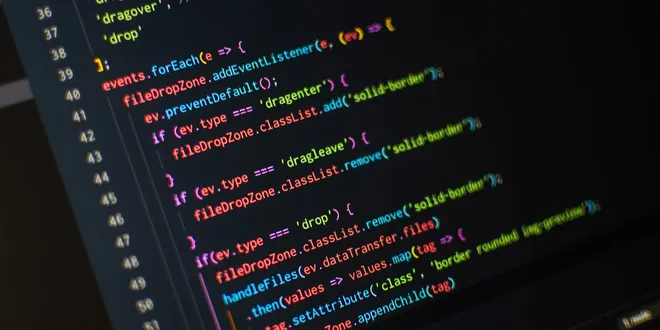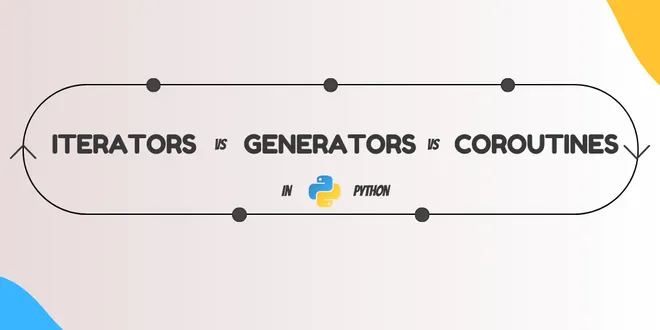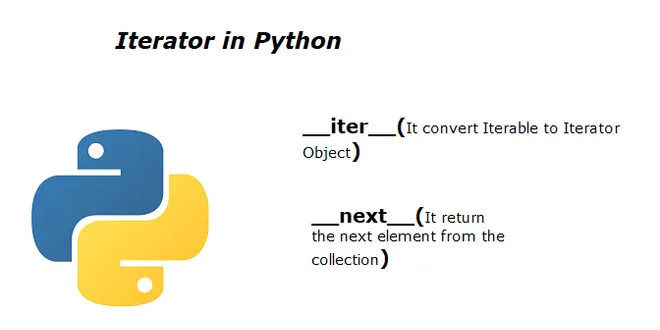Iterators&Generators Python

Iterators & Generators
5. Iterators & Generators 5.1. Iterators We use for statement for looping over a list. for i in [ 1 , 2 , 3 , 4 ]: ... print ( i ) ... 1 2 3 4 If we use it with a string, it loops over its charac...
📚 Read more at Python Practice Book🔎 Find similar documents

Demystifying Python Iterators, Generators, and yield
What is an Iterator? An iterator is any object that implements: __iter__() — returns the iterator object itself __next__() — returns the next value or raises StopIteration Built-in Iterators Example B...
📚 Read more at Python in Plain English🔎 Find similar documents

Understand Iterator, Iterable, and Generator in Python with Funny Examples
In Python, understanding iterators, iterables, and generators is key to working effectively with sequences of data. In this post, we will demonstrate how to create iterators, iterables, and generators...
📚 Read more at Python in Plain English🔎 Find similar documents

Generators and Iterators in Python
Many of us have often come across this concept-paradox of generators and iterators in Python. And let me tell you, most of them would say that basically both are the same entity. Often have you…
📚 Read more at Python in Plain English🔎 Find similar documents

Iterators and Generators in Python
In this post, We’ll discuss the python’s Iterators and Generators objects and decode why generators are memory efficient and why iterators are used over generators irrespective of memory usage. In…
📚 Read more at Python in Plain English🔎 Find similar documents

Iterators, Generators, and Coroutines: Unleashing Python’s Powerful Programming Paradigms
Iteration is a fundamental concept in programming. It allows us to process data series one at a time, which is often necessary when the data is too large to fit in memory. the Iterator design pattern ...
📚 Read more at Python in Plain English🔎 Find similar documents

Python Tutorial 27 — Python Iterators and Generators: Usage and Examples
Table of Contents 1. Introduction 2. What are Iterators and Generators? 3. How to Create and Use Iterators 4. How to Create and Use Generators 5. Differences and Similarities between Iterators and Gen...
📚 Read more at Python in Plain English🔎 Find similar documents

Python Generators
Generators are function used to create iterators, so that it can be used in the for loop.Creating Generators Generators are defined similar to func…
📚 Read more at ThePythonGuru🔎 Find similar documents

Python Generators
Generators are function used to create iterators, so that it can be used in the for loop.Creating Generators Generators are defined similar to func…
📚 Read more at ThePythonGuru🔎 Find similar documents

3. Generators
First lets understand iterators. According to Wikipedia, an iterator is an object that enables a programmer to traverse a container, particularly lists. However, an iterator performs traversal and gi...
📚 Read more at Python tips🔎 Find similar documents

Iterator in Python
Python Iterator,Generator,what is Iterator,Iterator in python,best blog for iterator,iterator in python medium,iterator in data science,iterator in machine learning.
📚 Read more at Analytics Vidhya🔎 Find similar documents

A Complete Guide to Iterables in Python: Generators, Iterators, and More
In Python, an iterable is an object that can be traversed through its elements. It provides a sequence of values that can be accessed sequentially or used in iteration constructs like loops. Common ty...
📚 Read more at Python in Plain English🔎 Find similar documents


